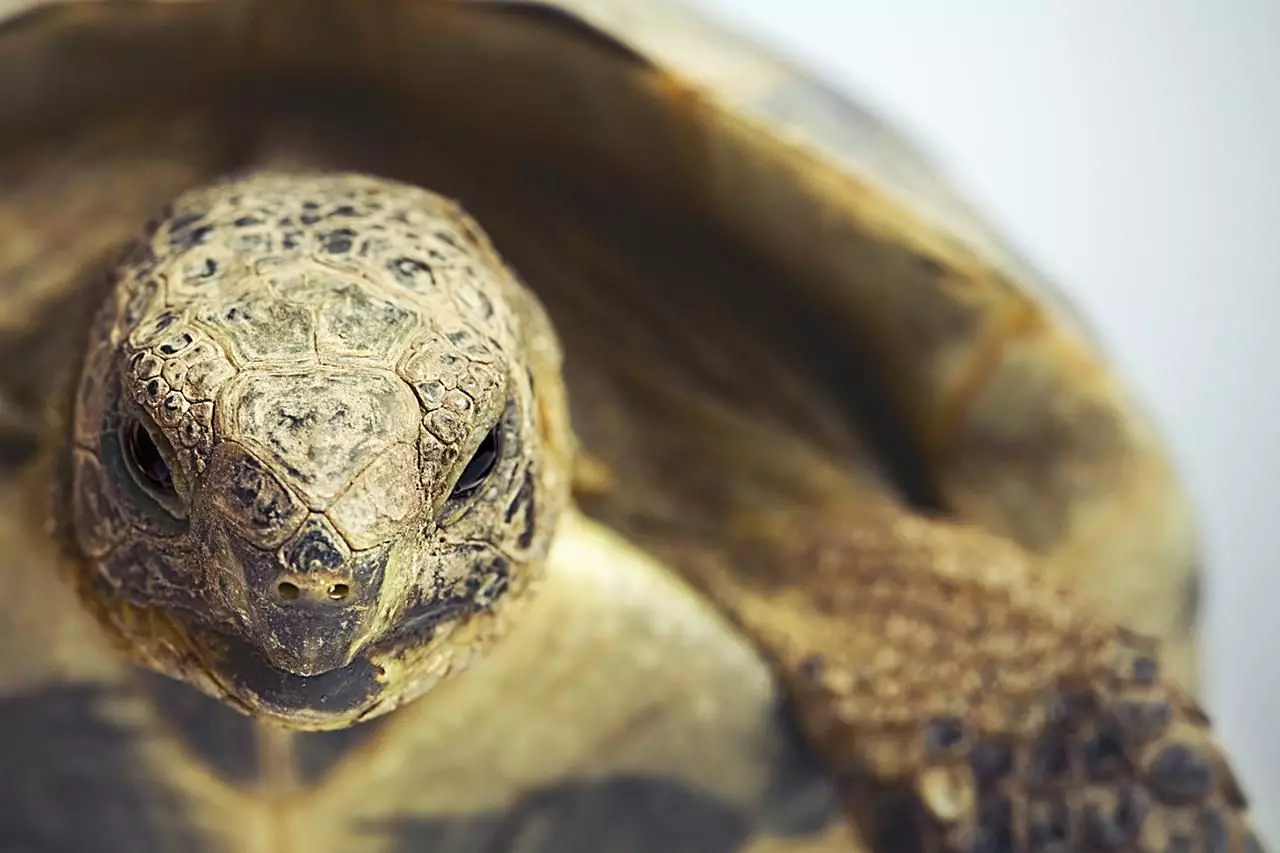Greek tortoises, scientifically known as *Testudo graeca*, are a fascinating choice for reptile enthusiasts and families looking for a unique pet. Hailing from the sun-drenched regions of Southern Europe, Northern Africa, and Southwest Asia, these tortoises are valued not just for their distinct appearance, characterized by tan to yellow shells with dark brown to black markings, but also for their generally amiable nature. However, it’s crucial for potential owners to fully understand the long-term commitment involved in caring for these pets, which can live upwards of 50 years in a controlled environment.
While they may seem like charming pets, Greek tortoises are not particularly fond of being handled. This aversion is often misunderstood, yet it’s essential for potential owners to respect their desire for minimal interaction. Handling can lead to stress, which can adversely affect their health. Therefore, when it comes time to clean their enclosure or check their well-being, it’s advisable to handle them gently and thoughtfully. Once acclimatized, many Greek tortoises will exhibit friendly behaviors, actively approaching their owners, especially in anticipation of feeding. This trait highlights their playful nature, making them enjoyable companions under the right conditions.
Creating an ideal habitat for a Greek tortoise is crucial for their well-being. While they don’t require high enclosures, they do need a significant amount of floor space for movement and exercise. A typical enclosure recommended for adult tortoises should be at least 3 feet by 6 feet and 18 inches high, although larger is always preferable. Non-traditional housing options, such as large storage tubs or custom-built wooden enclosures, are often favored over fish tanks, which do not provide the necessary area for them to thrive.
Maintaining a safe outdoor environment is equally important. When temperatures rise above 75 degrees Fahrenheit, outdoor time can be beneficial, but constant supervision is a must. A secure pen with an underground barrier and adequate shaded and sunny areas will provide a stimulating environment for these inquisitive creatures, while also protecting them from predators and possible escapes.
The ideal temperature range for a Greek tortoise’s habitat should fall between 75 and 90 degrees Fahrenheit. The basking area requires a heat lamp to raise temperatures to about 95 to 100 degrees Fahrenheit, allowing the tortoise to thermoregulate effectively. At night, it’s acceptable for temperatures to decrease to around 70-80 degrees Fahrenheit.
Humidity levels are equally critical, with an ideal range of 40% to 60%. Monitoring humidity with a hygrometer is an essential part of caretaking. Misting the tortoise and maintaining an accessible water supply not only contributes to hydration but also helps sustain humidity levels, preventing potential health complications.
Diet is vital in ensuring the longevity and health of a Greek tortoise. As herbivores, these tortoises thrive on a high-fiber, low-protein diet consisting predominantly of various leafy greens and vegetables such as collard greens, endive, and shredded carrots. It’s also important to provide these foods on a clean surface to avoid ingesting substrate materials. While fruits can be included sparingly—constituting no more than 10% of their diet—it’s critical to dust their greens with calcium powder regularly to promote bone health and prevent metabolic diseases.
Offering a mix of dietary options not only keeps meals exciting but also supports healthy beak wear, particularly through the inclusion of Timothy hay. In favor of this well-rounded diet, consultation with a veterinarian should guide specific dietary needs tailored to individual tortoises.
Owners need to be vigilant about the possible health issues that can afflict Greek tortoises. Shell rot, typically caused by fungal infections, needs prompt attention to avoid severe deformities, while metabolic bone disease, arising from improper calcium-phosphorus ratios, can be equally devastating if left untreated. Respiratory infections are also a concern, often linked to incorrect humidity levels. Regular examinations and a proactive approach to health can mitigate these risks.
Acquiring a Greek tortoise is not merely an acquisition of a pet but a long-term commitment that can last half a century or more. Proper care, housing, dietary requirements, and health management create a fulfilling environment for both the tortoise and its owner. If you are ready to embrace this responsibility, a Greek tortoise can offer companionship rich in personality and charm. Always prioritize acquiring your new pet from reputable breeders to ensure a healthy start to a long journey of companionship.


Leave a Reply